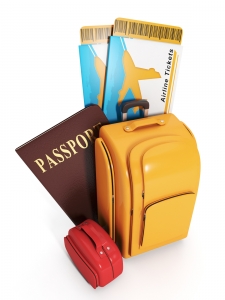 Passengers travelling to Canadian airports can continue to enjoy clear passage after Brexit, according to the UKs Transport Secretary, following an aviation agreement made between the two countries at the end of last month.
Passengers travelling to Canadian airports can continue to enjoy clear passage after Brexit, according to the UKs Transport Secretary, following an aviation agreement made between the two countries at the end of last month.
The agreement spells good news for the aviation industry, which has been surrounded by uncertainty following the UKs decision to leave the EU in 2016. The UK-Canada arrangement will replace the current EU aviation agreement, thus assuring continued access to the aviation routes the UK currently enjoys with Canada.
This follows the UK government’s announcement last month of a new Open Skies agreement with the United States, which will also mirror and replace the current EU arrangement.
The recent agreements will ensure continued access to vital air routes that carry millions of people across the Atlantic every year, will also make sure business operators will not lose out, and will pave the way for future trade deals supported by air travel.
The UK-Canada air route has been steadily growing over the past six years, and more than 3.5 million passengers were transported last year alone.
This is all good news for the aviation industry, and for global trade opportunities, which rely on the UK as a major European hub. These two latest arrangements with the US and Canada come after an announcement that another eight bilateral arrangements have already been concluded with other countries – Switzerland, Israel, Iceland, Kosovo, Montenegro, Albania, Georgia and Morocco.
UK transport secretary, Chris Grayling said after the US agreement, ‘Our transatlantic flights have helped to bring our countries even closer together, strengthening our ties and boosting our economies. This new arrangement and those concluded with 8 other countries around the world are proof that the UK will continue to be a major player on the world stage after we leave the EU.’



 It has been announced that Rotterdam The Hague Airport will soon begin testing a new, automated baggage handling solution that promises to improve baggage processes through the use of automated vehicles.
It has been announced that Rotterdam The Hague Airport will soon begin testing a new, automated baggage handling solution that promises to improve baggage processes through the use of automated vehicles. Passengers using
Passengers using  According to the latest analysis from the Airports Council International (ACI), global passenger satisfaction levels are on the rise again. Comparing Q3 of 2018 to 2017, ACI noted that levels increased to 4.21 from 4.17, and have remained stable since the start of this year.
According to the latest analysis from the Airports Council International (ACI), global passenger satisfaction levels are on the rise again. Comparing Q3 of 2018 to 2017, ACI noted that levels increased to 4.21 from 4.17, and have remained stable since the start of this year. The historic VIP protocols granted by the Federal Investigation Agency in Pakistan have just been withdrawn by the new Government, led by cricketer Imran Khan this week.
The historic VIP protocols granted by the Federal Investigation Agency in Pakistan have just been withdrawn by the new Government, led by cricketer Imran Khan this week. As airports around the world appear to be placing more and more importance on passenger experience and satisfaction, it is interesting to read that the latest Aviation Consumer Survey results from the CAA show that there is a clear drop in just that. But where are passengers less satisfied?
As airports around the world appear to be placing more and more importance on passenger experience and satisfaction, it is interesting to read that the latest Aviation Consumer Survey results from the CAA show that there is a clear drop in just that. But where are passengers less satisfied? Virgin Atlantic has spoken out in a call to the UK government to take action to reduce immigration waiting lines, asking that its passengers receive the ‘welcome visitors deserve.’ The US airline spoke out following reports that waiting times for passenger processing through immigration had reached up to two and a half hours.
Virgin Atlantic has spoken out in a call to the UK government to take action to reduce immigration waiting lines, asking that its passengers receive the ‘welcome visitors deserve.’ The US airline spoke out following reports that waiting times for passenger processing through immigration had reached up to two and a half hours.